7 plants that will thrive in the shade
These popular plants will thrive in a shady yard or garden
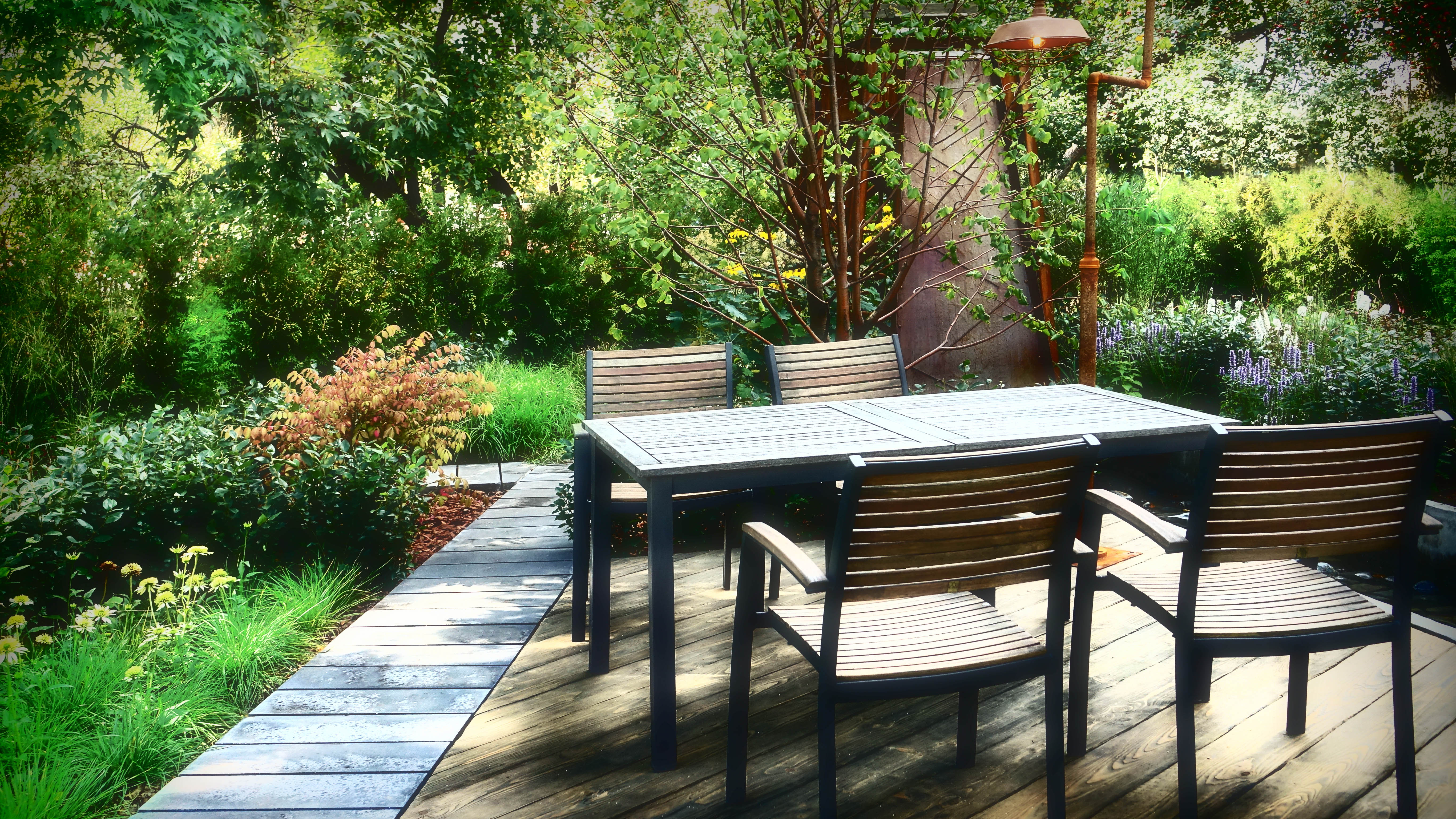
If you have shady spots in your yard or garden, it can often be challenging for plants to thrive (or even survive). After all, sunlight is a key component for plant growth, giving them all the energy they need.
Luckily, it’s not the end of the world if you have plenty of backyard shade. There are certain plants and shrubs that actually prefer the shade, and will thrive all year round.
Before you get planting, experts recommend finding out exactly how much shade your yard is getting. Typically, full shade is usually three hours or less of direct sun, while partial shade is about three to six hours of shade each day. In addition, if you’re planting perennials (plants that live more than two years), it’s best to check they're suited to your USDA Hardiness zone.
Whether you’re planting in the ground, patio containers or hanging baskets, you can find a variety of shade-loving plants to suit your environment. Check out these 7 plants that will thrive in the shade for a beautiful yard.
If you’re a houseplant lover, here are 7 plants that can survive without sunlight if your home lacks light. Plus, here’s when you should bring your plants inside for the winter.
1. Hydrangeas
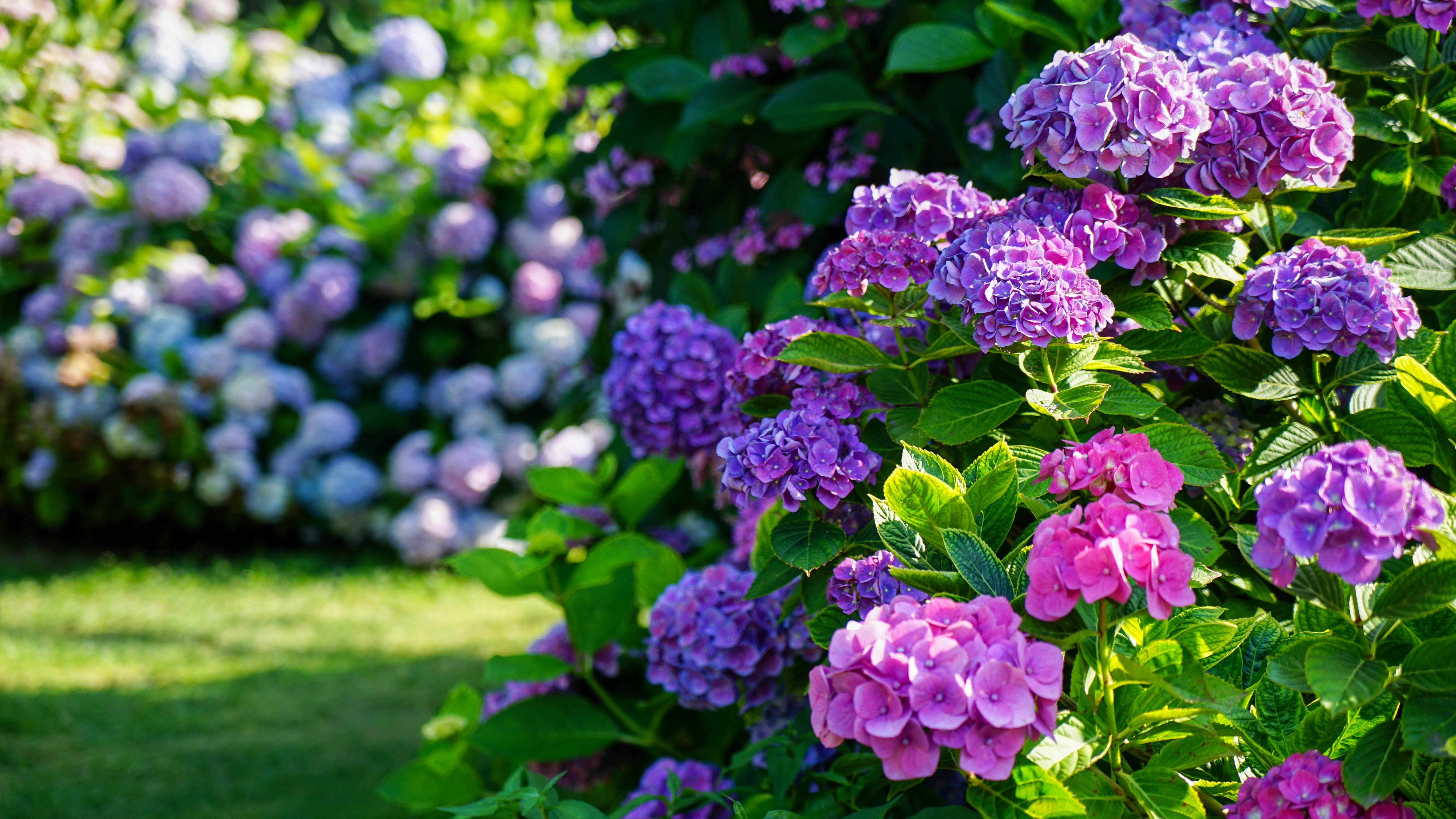
Hydrangeas are one of the most popular plants, and come in many species. With big blooms ranging from white and pink, to blue, they can also bring striking color and character to your garden.
Oakleaf hydrangeas, blue enchantress, pink splendor or munchkin are among the best shade-loving varieties for yards that lack light. The oakleaf hydrangea in particular can thrive in full shade, while most species bloom in partial shade or partial sun. Named after their dramatic oak-shaped leaves, this variety will bloom all year round — no matter the season.
Sign up to get the BEST of Tom's Guide direct to your inbox.
Get instant access to breaking news, the hottest reviews, great deals and helpful tips.
Hydrangeas can be planted in a mixed border or in containers, and require watering around one or two times a week, depending on the climate, and regular pruning. While hydrangeas are one of the easiest plants to grow, just beware of these 5 mistakes to avoid when growing hydrangeas.
2. Fuchsia
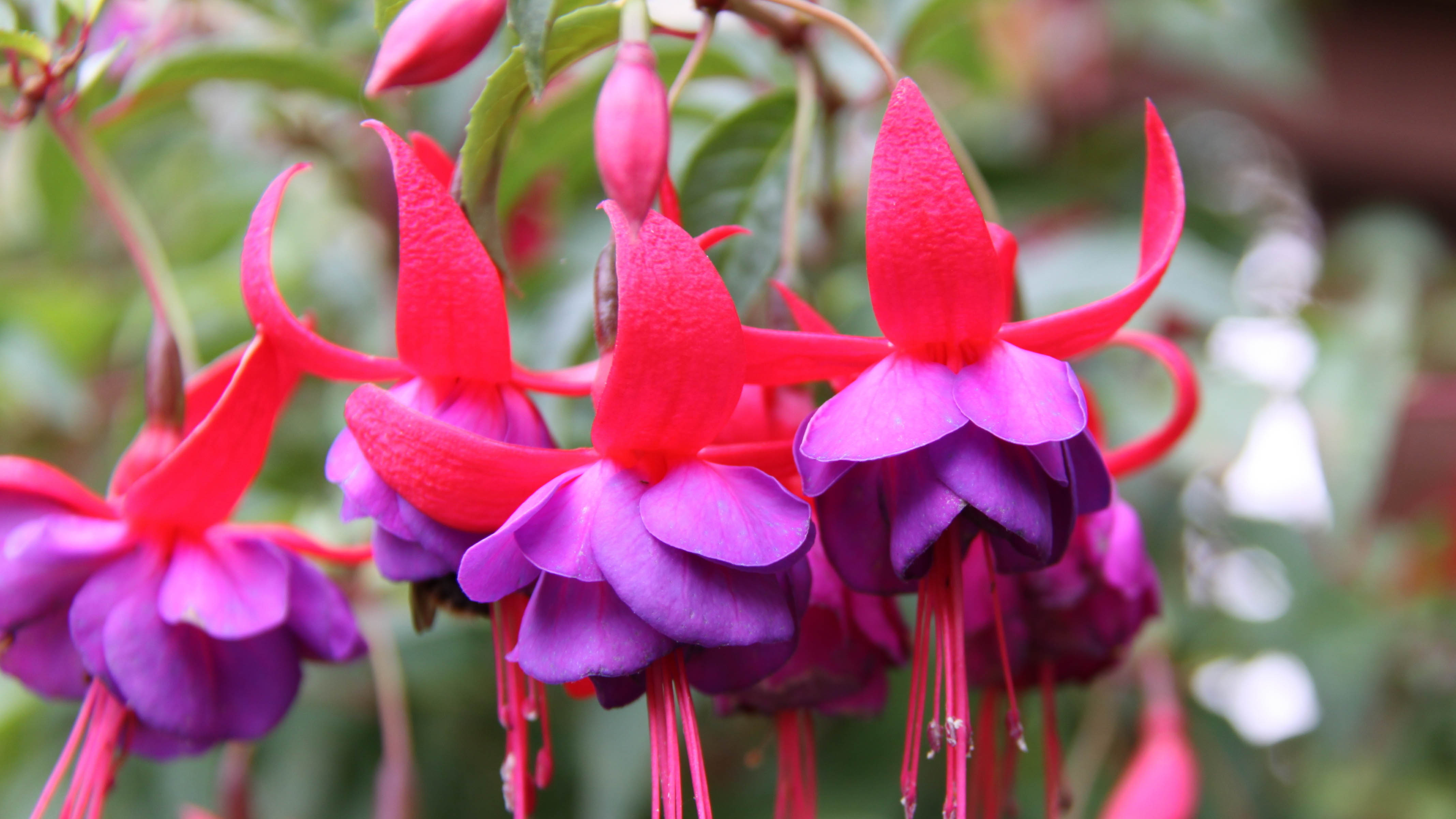
These small pink and purple flowers are surprisingly hardy, with many species growing well in sun or partial shade. This is mainly because fuschia are natural woodlanders, known to thrive in dim light. In particular, the pale-flowered species such as Fuchsia magellanica var. molinae and Fuchsia 'Hawkshead' will survive the shade.
For best results, experts recommend planting fuchsias in early summer. And while you can plant during late summer, you'll need to water regularly in dry weather to give fuchsias a good start. Suitable for flower beds or containers, these pretty flowers will add vibrant color to any outdoor space.
3. Hosta
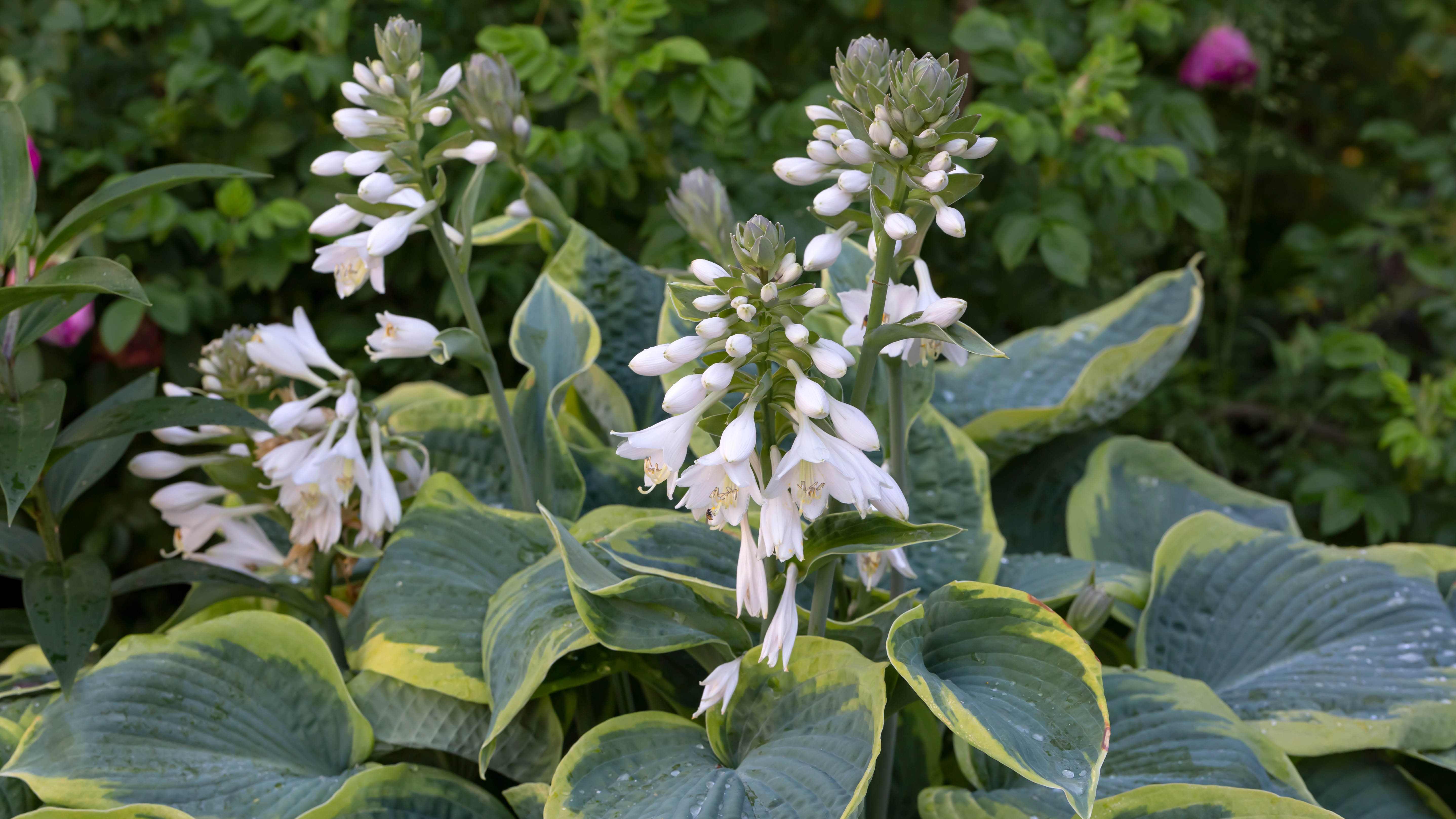
Hostas come in a wide range of shapes, colors and sizes, and are known to love the shade. In fact,some hostas can start from a tiny 4 inches to grow as large as 6 feet across!
With over 29 varieties, the best ones to thrive in full shade include Hosta 'El Niño Green, Touch of Glass and Stained Glass Hosta among others. Just remember to give it a fairly consistent supply of water to nourish their lush, beautiful foliage.
Bear in mind that these perennial plants are a favorite of deer and rabbits, so you might want to consider this when placing them. In any case, hosta plants can transform a lacklustre garden into a lush and beautiful outdoor space.
4. Ferns
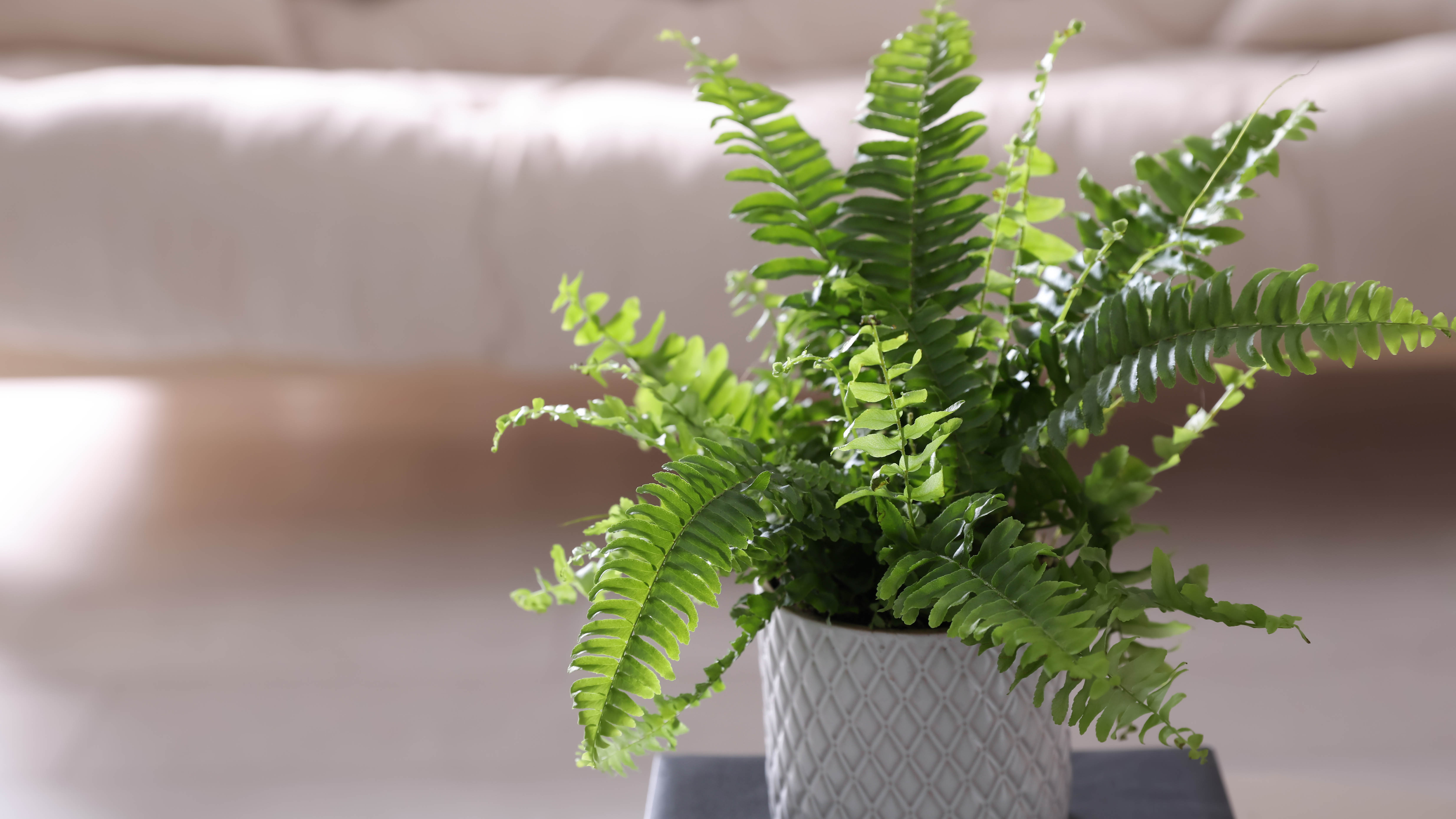
It comes as no surprise that these lush, bountiful plants originated in moist and shady woodland— making them the ideal, shade-loving plant. In fact, most ferns prefer indirect light and tend to thrive well in partial to full shade. If placed in full sun, it will burn the fern frond, and lush leaves end up being dry and crisp. The best ferns for full shade include the Dryopteris, Polystichum and Asplenium varieties.
These perennials come in a variety of forms, and can reach up to a few feet tall — which is great if you want to create more privacy in your backyard.
Depending on the species, their lacy structure can spread to form a lush ground cover, to make a stunning landscape.
5. Foxgloves
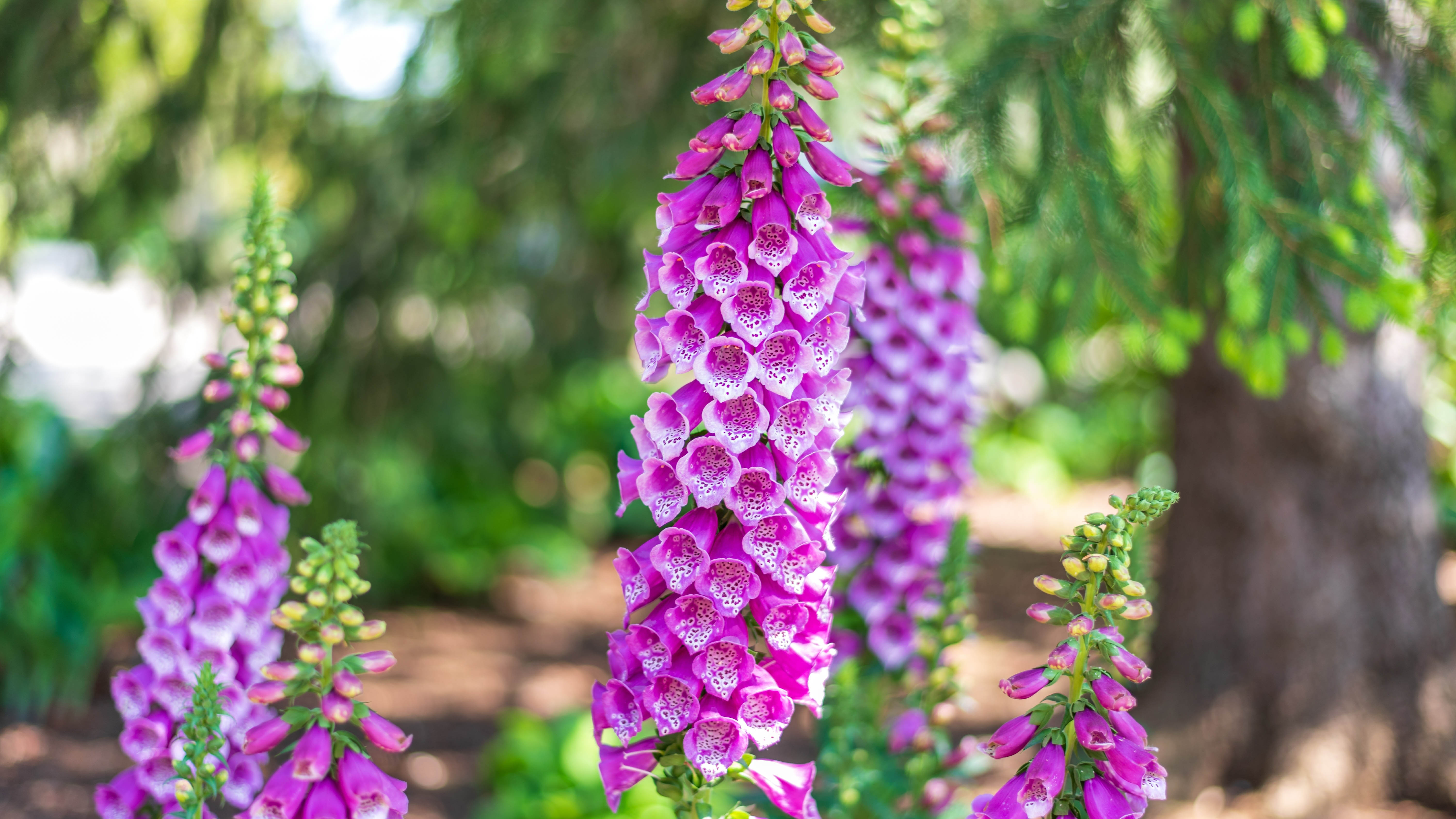
The foxglove (Digitalis) is a beautiful, cottage-style favorite, known for its characteristic spires of bell-shaped flowers. Originally woodland plants, foxgloves prefer partial to full shade, blooming in late spring and summer.
The best shade-loving variety is the white foxglove that can grow well in almost complete shade, and dry conditions. These also enjoy the shade under trees and are ideal for adding height in borders. Typically, foxgloves will grow in any soil type, but prefer rich, moist, well-drained soil.
6. Foamflower
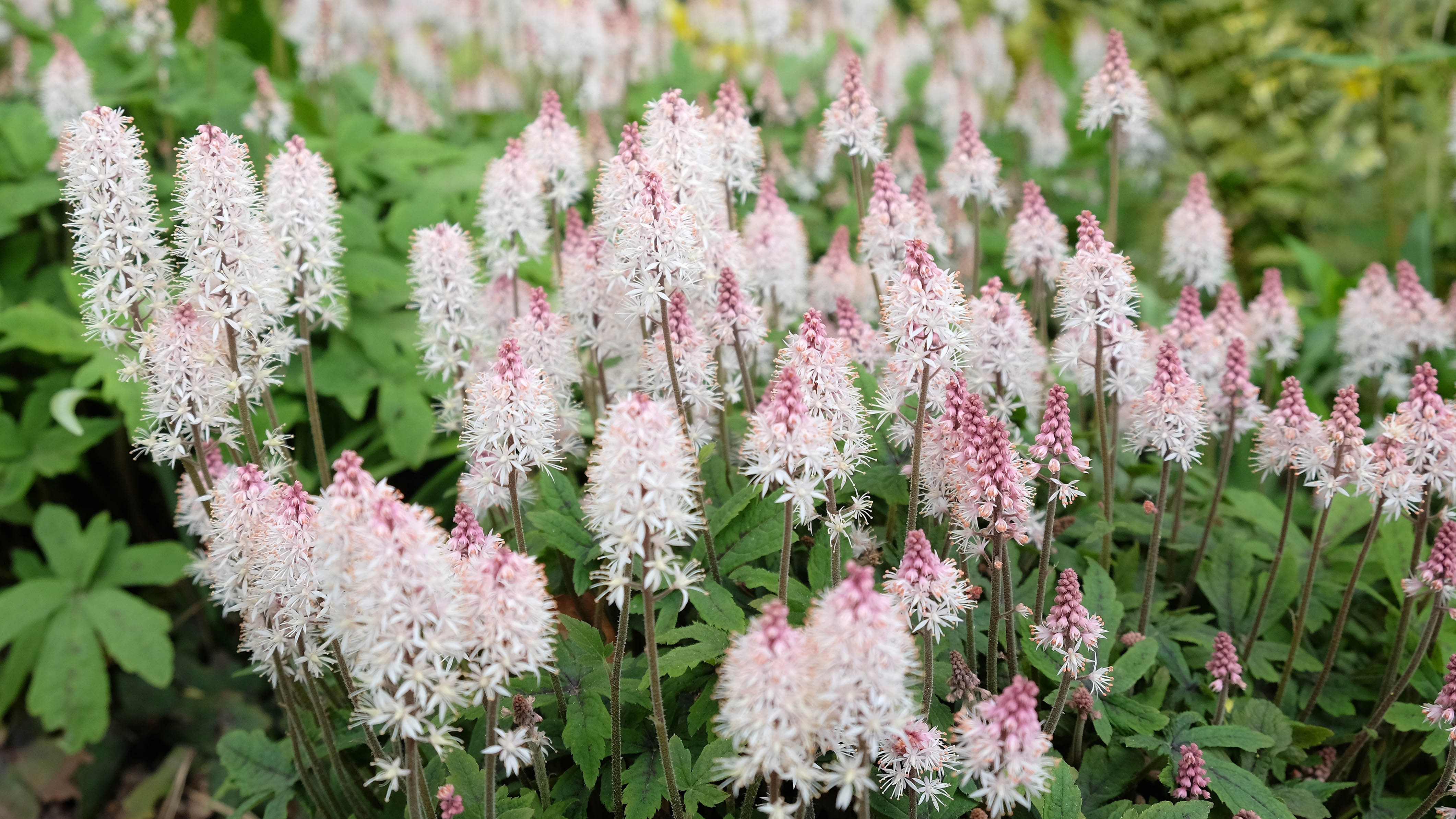
The Foamflower (Tiarella) is another classic woodland plant that is native to North America. Known for its white, frothy-like flowers, and heart-shaped leaves, this dainty perennial is pretty hardy.
Foamflowers tend to thrive well in deep shade and dappled light that simulates their woodland habitat. This makes it the ideal plant for shady backyards, rock gardens, or massed as a groundcover.
What’s more, this perennial is evergreen, meaning they will never lose their green foliage all year round. Typically, these feathery flowers are white or pale pink with patterned foliage. In fact, these species will look stunning with other shade-loving plants such as ferns and hostas.
7. Begonia
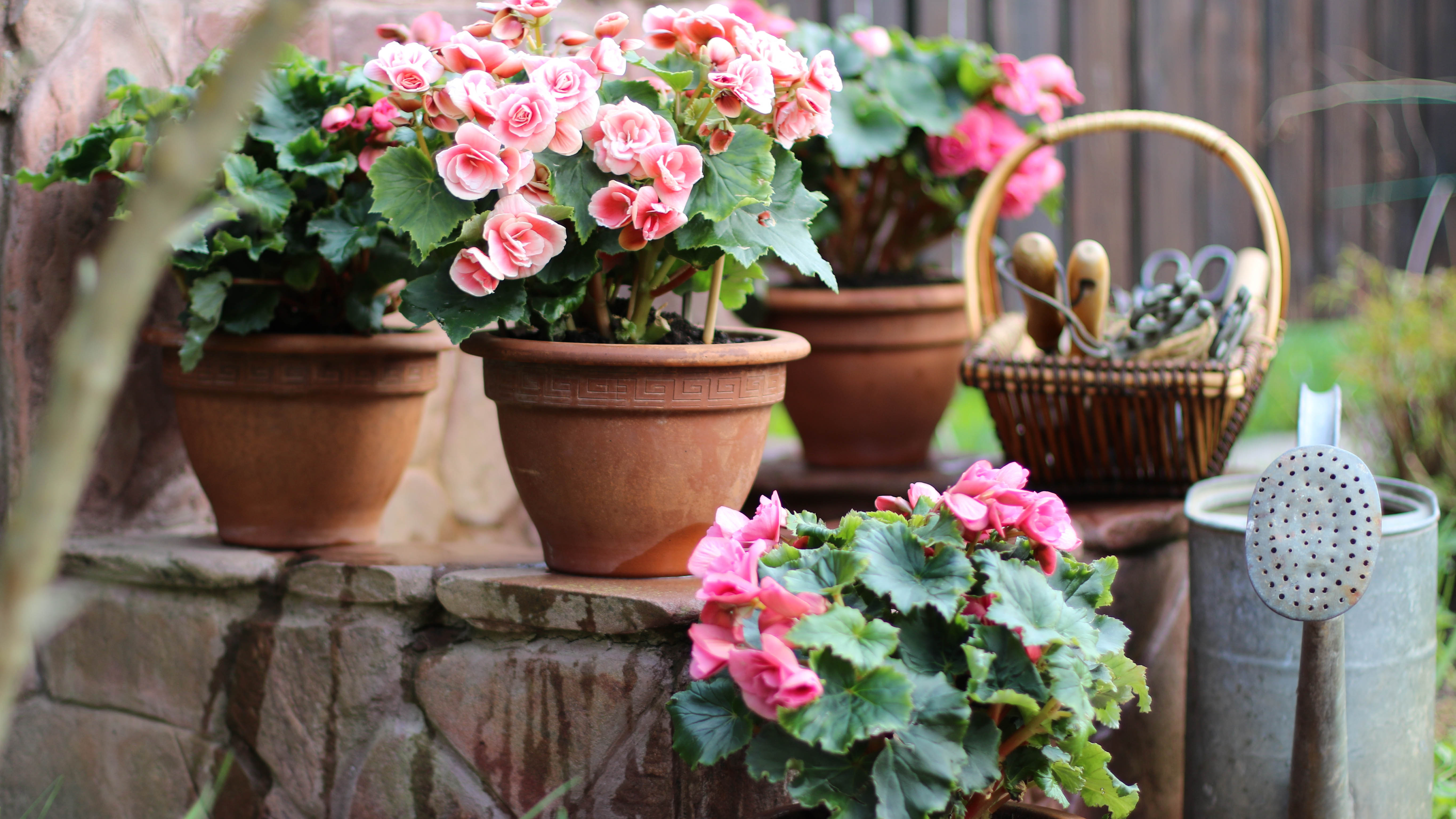
These popular, vibrant flowers are also known to grow best in semi-shaded areas. And while there are certain species that can grow in full shade, these tend to grow slower and bloom less compared to those with partial shade.
Depending on the variety, begonias can start from 6 inches in height right up to 3 feet tall and from 6 to 18 inches wide. Begonias can spruce up flowerbeds, containers or patio planters, just ensure the soil is kept moist but well drained.
Alternatively, if you wanted to place indoors, east-facing windows are recommended as they provide bright indirect light. What’s more, begonias are evergreen, so once they start to flower, they will bloom continuously throughout the seasons.
More from Tom's Guide
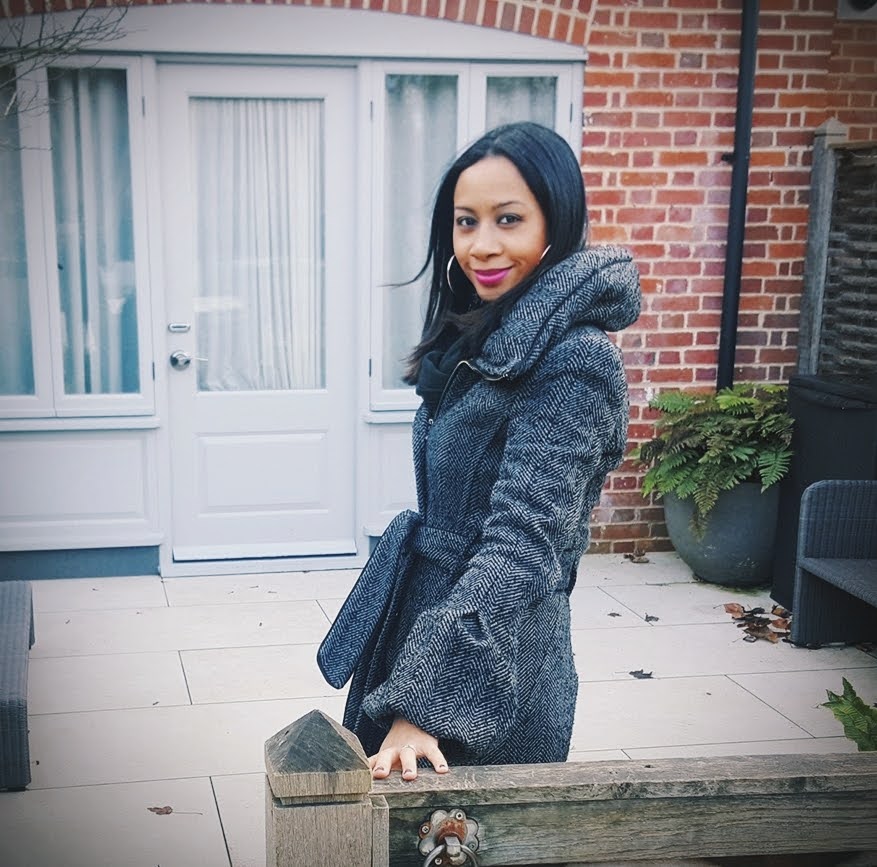
As the Homes Content Editor, Cynthia Lawrence covers all things homes, interior decorating, and garden-related. She has a wealth of editorial experience testing the latest, ‘must-have’ home appliances, writing buying guides and the handy ‘how to’ features.
Her work has been published in various titles including, T3, Top Ten Reviews, Ideal Home, Real Homes, Livingetc. and House Beautiful, amongst many.
With a rather unhealthy obsession for all things homes and interiors, she also has an interior design blog for style inspiration and savvy storage solutions (get rid of that clutter!). When she’s not testing cool products, she’ll be searching online for more decor ideas to spruce up her family home or looking for a great bargain!
